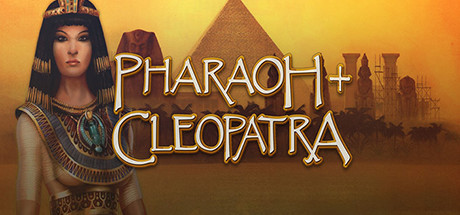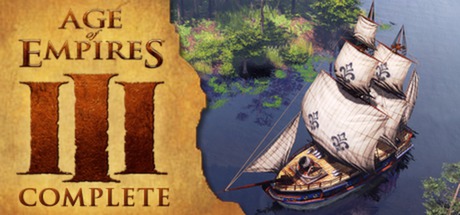
90
Players in Game
2 227 😀
208 😒
87,49%
Rating
$4.99
Pharaoh + Cleopatra Reviews
Immerse yourself in Ancient Egypt from the age of the great pyramids to the final years of the New Kingdom.
| App ID | 564530 |
| App Type | GAME |
| Developers | Impressions Games |
| Publishers | Activision |
| Categories | Single-player |
| Genres | Strategy, Simulation |
| Release Date | 15 Dec, 2016 |
| Platforms | Windows |
| Supported Languages | English |

2 435 Total Reviews
2 227 Positive Reviews
208 Negative Reviews
Very Positive Score
Pharaoh + Cleopatra has garnered a total of 2 435 reviews, with 2 227 positive reviews and 208 negative reviews, resulting in a ‘Very Positive’ overall score.
Reviews Chart
Chart above illustrates the trend of feedback for Pharaoh + Cleopatra over time, showcasing the dynamic changes in player opinions as new updates and features have been introduced. This visual representation helps to understand the game's reception and how it has evolved.
Recent Steam Reviews
This section displays the 10 most recent Steam reviews for the game, showcasing a mix of player experiences and sentiments. Each review summary includes the total playtime along with the number of thumbs-up and thumbs-down reactions, clearly indicating the community's feedback
Playtime:
262 minutes
Bugged
👍 : 0 |
😃 : 0
Negative
Playtime:
1405 minutes
Nostalgic.
👍 : 0 |
😃 : 0
Positive
Playtime:
547 minutes
very very very fun
👍 : 0 |
😃 : 0
Positive
Playtime:
19670 minutes
Great old school city builder. Very enjoyable.
👍 : 0 |
😃 : 0
Positive
Playtime:
1846 minutes
This was my introduction to the genere of Impression Games style of city building.
This was one of my favorite CD based games from the 90s.
The music is fun, the visuals look amazing and it's fun to watch them construct the pyramids; laying down the foundation to pulling the stones in.
I know they made a remastered version of this, but really the RM can't compare to the original. It has a subtle ascetic that makes it unique.
👍 : 1 |
😃 : 0
Positive
Playtime:
1373 minutes
Pharaoh + Cleopatra, developed by Impressions Games and published by Sierra in 1999, is a landmark in the city-building genre and remains one of the most atmospheric, mechanically rich, and historically grounded simulations ever made. As a spiritual successor to Caesar III, and part of the same engine lineage, Pharaoh takes the proven city-building framework and transplants it to Ancient Egypt, complete with Nile floods, monument construction, and a unique economy centered around the rhythms of Egyptian life. The included Cleopatra: Queen of the Nile expansion adds a substantial campaign and new challenges, making this bundle a must-play for both fans of classic strategy games and those interested in historical simulation.
The game puts you in the sandals of a noble family rising through Egyptian society over the course of several millennia. Starting with small settlements along the Nile and progressing to mighty urban centers like Thebes and Memphis, each mission offers a distinct challenge grounded in a specific historical period. Objectives may involve building pyramid complexes, developing trade networks, maintaining political stability, or defending your city from invaders. These goals evolve in complexity over time, pushing you to master not just city layout, but also the subtleties of ancient logistics, religious appeasement, and long-term planning. The campaign is lengthy and well-paced, charting a believable evolution of Egyptian civilization while integrating mythology and monumental architecture.
Pharaoh’s core gameplay revolves around a detailed simulation of city life, with a walker-based system where citizens deliver goods and services by physically walking through your city. This means that city planning is far from cosmetic—your road layout, building placement, and service coverage directly affect how your city functions. Food distribution, water access, entertainment, healthcare, religion, and education are all necessary to evolve simple huts into grand estates. This system creates a highly strategic puzzle out of urban planning: if water bearers don’t walk far enough, your houses will regress; if priests or entertainers can’t reach homes, citizens become unhappy. Unlike modern city builders with radius-based effects, Pharaoh demands spatial logic and constant refinement.
Resource management is where the game truly shines. Your economy is tied to the Nile, whose yearly flooding nourishes farmland but also poses a threat if poorly managed. Agriculture is the backbone of your city, but it ties into a broader system of manufacturing, trade, and taxes. Players must establish supply chains: grow barley, turn it into beer; mine gold and export it; craft luxury goods like jewelry or papyrus. Trading with other cities becomes essential as some resources—like cedar wood or precious incense—are unavailable locally. Balancing internal production with external trade requires careful attention to storage yards, transport logistics, and maintaining trade routes. When it all works smoothly, it’s immensely satisfying. When it doesn’t, it’s a lesson in the fragility of ancient supply chains.
Religion and monument-building are essential aspects that differentiate Pharaoh from its Greco-Roman cousins. The game features five gods, each representing a domain such as agriculture or health. Players must construct temples and shrines and host festivals to keep the gods appeased. Neglect them, and divine wrath may manifest in plagues, crop failures, or industrial accidents. Meanwhile, monument construction—pyramids, mastabas, sun temples, and obelisks—serves as the ultimate test of your city’s stability and resource coordination. These massive projects take years to complete and require vast quantities of labor, stone, and food. Watching a pyramid slowly rise over decades of in-game time is one of the most rewarding visual payoffs in any city builder.
The expansion, Cleopatra: Queen of the Nile, integrates seamlessly with the base game and pushes the time frame forward into the Ptolemaic era. It introduces new missions, additional monuments such as temples to Isis and the Lighthouse of Alexandria, and an increase in military challenge. Foreign invasions, particularly from the Romans, are more frequent and demanding. This makes military defense more critical, and players must balance their economy with the need to train troops, construct fortifications, and maintain an army. Though combat is still the weakest aspect of the game—with clunky controls and limited tactical depth—it adds stakes and variety to the mostly economic and logistical gameplay.
Graphically, Pharaoh + Cleopatra has aged with surprising grace. The 2D sprite-based visuals are richly detailed, colorful, and filled with life. From the bustling markets and scribes' schools to the flowing Nile and towering pyramids, every part of the game is lovingly animated. Citizens go about their daily lives in believable routines, and the environment reacts to your decisions—fields turn brown during droughts, and construction sites grow slowly over time. The interface, though dated by today’s standards, remains functional and intuitive after a brief learning curve. The game's use of overlays and advisors to communicate city health is particularly well done, giving you insight into underlying problems without overwhelming you.
The audio design, too, contributes heavily to the game's atmosphere. The soundtrack features a blend of ambient and traditional-sounding Egyptian music that complements the slow pace of city management without becoming repetitive. Sound effects—market chatter, festival drums, or the ominous voice of a displeased god—further enrich the experience. The advisor voiceovers are memorable and helpful, though some of their phrases may wear thin after dozens of hours. Still, they help build a sense of immersion and continuity throughout the campaign.
There are flaws, of course. The walker system, while clever, can be unpredictable and occasionally frustrating. Services may not reach certain neighborhoods due to poor road design or AI quirks, which can lead to unexpected regressions. Military gameplay feels tacked on, offering little tactical nuance beyond placing forts and hoping your soldiers win. And for players used to modern conveniences like auto-saving, notifications, or advanced logistics tools, Pharaoh can feel unforgiving. But these quirks are part of its charm. The game requires patience, planning, and experimentation, rewarding you with a deep sense of accomplishment when your sprawling Egyptian metropolis thrives.
Ultimately, Pharaoh + Cleopatra remains a towering achievement in city-building and historical gaming. It manages to combine complex systems, historical authenticity, and rewarding gameplay into a cohesive and engrossing experience. Few games since have matched its dedication to simulating an ancient civilization with such detail and care. Whether you’re an armchair historian, a strategy enthusiast, or simply a fan of intricate management games, Pharaoh + Cleopatra offers a timeless journey into the heart of the ancient world—one paved not just with roads, but with vision, patience, and stone.
Rating: 9/10
👍 : 1 |
😃 : 0
Positive







